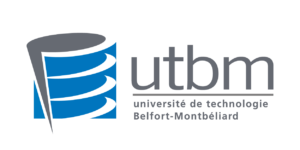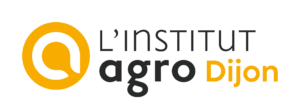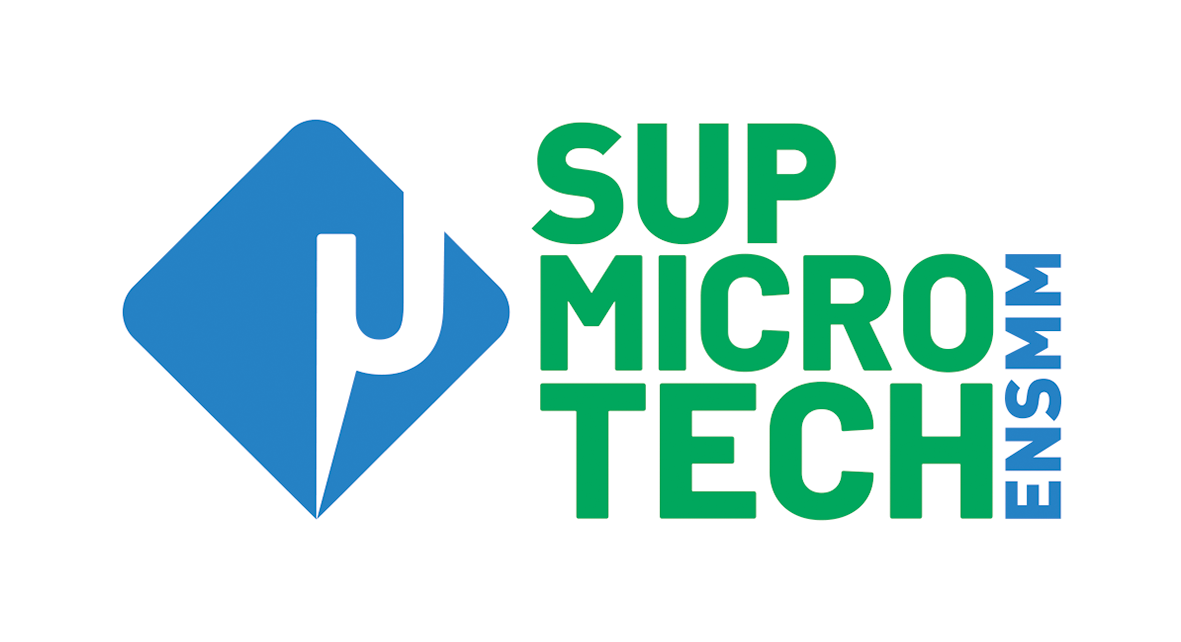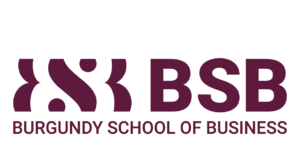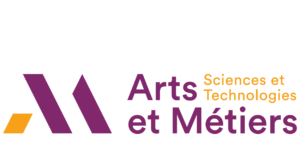TRANSBIO Graduate School
Join TRANSBIO Graduate School’s program in Territories, environments and food
> Promote the transition to sustainable resources use and biodiversity protection
TRANSBIO Graduate School offers master-degree and PhD programs, which combines training and research. It has tight links with high-level research units and the scientific axis “Territories, environment, food” of the Bourgogne-Franche-Comté university.
TRANSBIO Graduate School offers 15 masters covering 5 fundamental and applied scientific fields:
- Global changes in the Anthropocene
- Ecology, conservation and environmental sciences
- Food and Wine Science and Technology
- Plant sciences and microbiology
- Geography and socio-economic sciences for land use management
TRANSBIO Graduate School collaborates with 12 research units, 3 federative structures (groups of research units developing multidisciplinary work) and 3 doctoral schools.
- École doctorale Droit, gestion, sciences économiques et politiques (DGEP)
- École doctorale Environnement-santé (ES)
- École doctorale Société, espace, pratiques, temps (SEPT)
Who is this degree for?
Students who have obtained a licence/bachelor’s equivalent to 180 ECTS (European Credits Transfer Scale) (high school diploma + 3 or 4 years of university studies).
Formal education or continuing education.
What?
TRANSBIO offers 15 Science Research Master’s degree programs to students and promotes:
– Open-mindedness for scientific and/or technological innovation through the access to the latest scientific knowledge and to the international scene thanks to our partners;
– Interdisciplinarity to face societal issues and to lead cross-disciplinary and future-oriented projects in the socio-economic world;
– A solid theoretical and experimental training, thanks to immersion in world-class university research groups, access to several technological platforms and links with socio-economic partners.
What do you learn ?
Multidisciplinary concepts and tools in the fields of agriculture, agronomy, food sciences, ecology, biodiversity, behavioral biology, sustainable development, geology, soil and environmental sciences, geology, geotechnics, mineral resources and geography, archaeology, economics, health, and human and social sciences related to the environment in general. Thanks to tese concepts and tools, you will study of all the interactions between organisms and their environment and human beings at various spatial and temporal scales.
Why?
To enter the world of work while pursuing a doctorate.
When?
Training of 2 years over 4 semesters (academic year from September to August).
Where?
Agro Institute of Dijon, University of Bourgogne (city of Dijon), University of Franche‑Comté (city of Besançon).
How?
Through 120 ECTS (60 ECTS during M1 + 60 ECTS during M2). Courses in English for 7 of them.
Year 1: 60 ECTS — 30 ECTS: science common core + 6 ECTS: research project 1 day/week + 12 ECTS: interdisciplinary courses + 12 ECTS: soft skills — foreign languages, digital/transversal/ entrepreneurial skills.
Year 2: 60 ECTS — 30 ECTS: advanced research internship (full time in an R&D company or in a laboratory — international exchange) + 24 ECTS: specialization + 6 ECTS: soft skills
Global Change in the Anthropocene
All master programs
Fields:
This is a multidisciplinary field that encompasses one or more of the following areas related to the TRANSBIO Graduate School master’s programs.
The goal of this cross-disciplinary master’s program is to provide students with concepts and tools to face global environmental changes, particularly the present and past impacts of human activities on the environment, biodiversity, and ecosystems, as well as potential solutions to mitigate them.
Career Opportunities:
Job opportunities in the field of global changes are numerous. Career opportunities can include pursuing research training in higher education and research (PhD and postdoctoral programs). Degrees can also lead directly to jobs in the public or private sector.
Examples of careers: scientific or management support for territorial management; research project manager in university laboratories, research institutes or R&D departments of international companies; international NGOs related to global environmental policies and strategies (UN-environment, IUCN, Nature Conservancy, etc.).
Environmental sciences, archaeology, ecology and geology
- 8 masters :
- Agroecology: Agrosciences, Environment, Territory, Landscape, Forest
- ASA: Archaeology, sciences for archaeology
- DyCoB: Dynamics and Conservation of Biodiversity
- EMME: Ecology, Monitoring and Management of Ecosystems
- 3G: Georesources, Geohazards, Geotechnics – Applied Geology
- GDE: Sustainable Management of the Environment
- QuEST: Water, Soil and Treatment Quality
- SEME: Soil, Water, Environment
Fields:
These masters programs cover a wide variety of fields related to environmental sciences and sustainable development. Some deal with the geological or biophysical characteristics of the environment, such as the 3G, QuEST and SEME programs. The Agroecology program deals with all the relationships between agrosystems, the environment and human-dominated landscapes in the context of agricultural production. Finally, the ASA, EMME, BEWM, DyCoB, and GDE programs focus on the interactions between organisms (including humans) and the environment, and how past and current human activities may affect them.
Career Opportunities:
Career opportunities include pursuing research training in higher education and research (doctoral and postdoctoral programs), as well as direct employment in the private sector (associations, consulting firms, industry, NGOs…) or public sector (local, regional, governmental and international governments).
Food science and technology
- 2 masters :
- MP²: Microbiology and Physicochemistry for food and wine Processes
- P²FOOD: Physiological and Psychological FOOd choice Determinants
Fields:
The fields concerned are microbiology and microbiological processes, chemistry and physicochemistry applied to food and wine science, analysis and stability of food and wine, food toxicology. They also cover the properties of food and fundamental notions of human eating behavior; sensory research and consumption, mechanisms of hunger, satiety, satiation and palatability. Overall, these Masters degrees focus on the links between food and human eating behavior.
Career Opportunities:
Career opportunities include pursuing research training in higher education and research (doctoral and postdoctoral programs), as well as direct employment in the public or private sector (research project manager in university laboratories, research institutes, or R&D departments of international companies).
Plant sciences and microbiology
- 3 masters:
- B²IPME: Integrative Biology and Plant-Microbe-Environment Interactions
- MAGE: Microbiology, antimicrobial resistance, genomics, epidemiology
- ForTheMicrobes : International Master in Microbiology (English/French)
Fields:
These master’s programs cover the fields of plant sciences and microbiology. The MAGE Master program is dedicated to health and safety, epidemiology and molecular biology (cell and molecular signaling, physiology…). The B2IPME master’s program, through an integrative vision, addresses the major concepts of plant-microorganism interactions, cell signaling, genetic innovation and plant ecophysiology, green biotechnologies for human health and well-being, as well as biodiversity and the functioning of agrosystems.
The ForTheMicrobes master’s degree is a double degree program between the University of Burgundy and the University of Mainz (Germany). The courses, which are entirely in English, will alternate between the two countries. The master’s program covers a wide range of microbiology topics: molecular physiology of fungi, microbial responses to environmental factors, interactions of microorganisms with each other and with hosts (animals or plants), biomolecular interactions and diversity of microbes in ecosystems. Emphasis is also placed on the circulation of microorganisms in different environments. The organization of the training offers students a large proportion of practical work and numerous laboratory internships to enable them to develop practical skills.
Career Opportunities:
Career opportunities may include the pursuit of research training in academia (doctoral and postdoctoral programs), as well as direct employment in the private sector (industry), public sector (governmental organizations) inter-professional organizations, or departmental laboratories.
Geography and socio-economic sciences for territorial management
- 2 masters:
- GEO-ADAUR: Decision Support in Urban and Regional Planning
- BDEEM: Behavioral and Digital Economics for Effective Management
Fields:
Areas include geography, environmental planning, land development, geographic information systems (GIS), statistics and data analysis, public policy, economics and finance, game theory, environmental economics, quantitative and qualitative techniques, and spatial economics.
Career Opportunities:
Career opportunities may include pursuing research training in higher education and research (doctoral and postdoctoral programs), as well as direct employment in the private sector (associations, consulting firms, industry, NGOs…) or public sector (local, regional, governmental and international governments).
The 12 laboratories affiliated with TRANSBIO bring together more than 500 researchers and permanent teacher-researchers.
- Chrono Environment: Functioning of the Biogeosphere, Ecosystems, Contaminant, Health, Past society and Environments
- CSGA: Physico-chemical, molecular, cellular, behavioral and psychological mechanisms underlying sensory perception of food
- Biogéosciences: Evolutionary ecology, environmental sciences, sedimentology, paleontology or climatology
- THEMA: Design, development, use and valorization of quantitative methods for the analysis of spatial structures and dynamics
- CRESE: Health, Health care, Agriculture, Finance, Regulation against fraudulent behavior in markets, Auction mechanisms
- LEDI: Health Economics, Territorial and Environmental Economics, Monetary and Financial Economics
- PAM: Microbial stress, water and structure, encapsulation and activities,
- oxidation of food and wine
- CREGO: Finance, marketing, management, HR and strategy
- Agroecology: Sustainable weed management, GEAPSI, plant-microorganism interactions, biology and ecosystem functions of soils
- ARTEHIS: Archaeology, Earth, History and Society
- CESAER: Dynamics and development of territories, Social groups and rural worlds
- CARCINOGENESE: Human papillomavirus-associated carcinogenesis
- URTAL 1: Dairy analysis
Individualized educational support:
- A mentor accompanies and advises you throughout your studies
Implementation on high‑tech platforms:
- Internships and research projects with scientific companies and laboratories
- Access to research platforms
An international research environment and many opportunities for research abroad:
- Grants for international internships, joint-master’s, joint-doctorate, Erasmus+, seminars, international workshops and more


